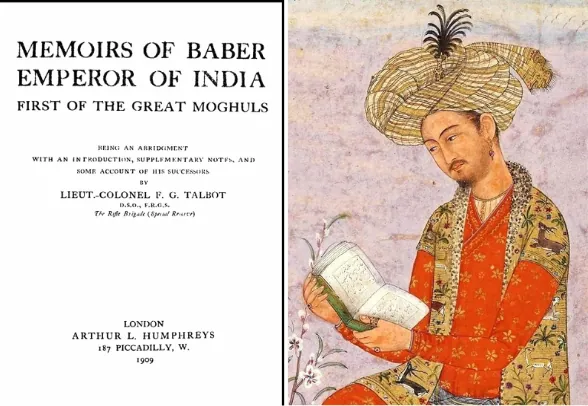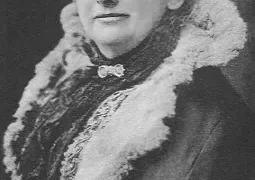My fondness for history extends, I believe quite naturally, to the extensive realm of Biography. In particular autobiography in its myriad forms — memoirs, diaries, journals, letters et al — never ceases to capture my interest. There is an immediacy to an autobiography that seems to reach through the curtains of time and space to create a connection that draws the reader into the circle of thought and experience of the writer. When it is well written, no matter the era or locale, autobiography brings the minutiae of life to vivid reality which can be as compelling as a personal experience. For a South Asian history buff, the best memoir of them all is undoubtedly the journal of the first of the Great Mughals, Jalaluddin Mohammad Babar. Written in Turki, his native language and spanning almost his entire life it is the startlingly frank and acutely discerning personal reflections of a complex and cultivated man of the world who also happened to be a conquering warrior, a statesman, and a poet. The Baburnama was translated into English by John Leyden and William Erskine in 1826 and the copy I own is an abridged version with an introduction and notes by F.G. Talbot first published in 1909.
As Talbot says in his introduction “The autobiography speaks for itself. It has been said to rank with the Confessions of St. Augustine and Rousseau, and the memoirs of Gibbons and Newton. In Asia it stands alone.”
What a robust, forceful, and energetic character emerges from the very first page in language that betrays a master of prose, a discerning artist, an avid nature lover, and a born poet! The memoirs are as compelling as any action-packed thriller as this daring young man rushes through his life which was eventful and dramatic from early boyhood until his death at, what is to us, the very early age of forty-seven.
“In the month of Ramadan of the year 899, and in the twelfth year of my age, I became ruler in the country of Ferghana,” so begins the Journal. Babar’s father, Umar Shaikh Mirza, had died the previous day in his mountain fortress of Akhsi when a landside bore down upon his pigeon house which was built on the edge of a ravine in a corner of the castle. The entire platform slid down to the river below taking him down with it. “On the fourth day of Ramadan my father, Umar Sheikh Mirza was engaged in feeding his pigeons when the platform slipped precipitating him from the top of the rock so that he flew with his pigeons and their house and became a falcon,” wrote Babur with the wryness that characterises his prose.
This riveting beginning then takes us through all the vicissitudes of life of this Turkish prince descended from both Timur the Great and Chenghiz Khan. He was different from his ancestors in that he was as interested in nation building as in conquest, so that when his eyes turned finally to the vast treasure land of India, he established the great Muslim dynasty that transformed South Asia into the patchwork quilt of races and religions that it is today.
It was a hard task that he set himself and a difficult process, not only to conquer India, but to hold on to it and eventually to consolidate his power. In the event, he could not complete his task and it fell not to his weak and dissolute son, Humayun but to that other fascinating Mughal, his grandson Akbar.
In the pages of the Journal we get to know the man, Babar and to understand his motivations. What made him choose to remain in India despite the strong opposition of his own men? Was the effort worth it? It seems that to Babar it was, because he had the vision to look at a time beyond his own, reaching out across history to the glory that would be his as the founder of a great empire. One of his favorite sayings was,
Give me but fame and if I die I am contented.
If fame be mine, let Death claim my body.
But the cost was high. He mentions how much he missed Kabul, certainly as much as any of his companions, and the heat and humidity of the country made him long for the mountain air and cold climate of his birth. He describes almost wistfully how the aroma of a mountain melon brought on a wave of nostalgia, but he had a mission to accomplish, and stoically he carried on.
The great charm of the Journal is its directness and simplicity and its total lack of artificiality. He writes, “In this history I have held firmly to it that the truth should be reached in every matter and that every act should be recorded precisely as it occurred. From this it flows of necessity that I have set down of good and bad whatever is known concerning father and elder brother, kinsman and stranger: of them all I have set down carefully the known virtues and defects.”
Abraham Eraly in his book, The Great Mughals describes Babar as “a blessed dilettante not a driven obsessed genius. Whatever he did was a vigorous and cheerful expression of his own vigorous and cheerful self, open and spontaneous. Babar delighted in being Babar. All things fresh and new gladdened him, and he bounded around his Indian empire with the feisty enthusiasm of a tourist.”
The entries in the Journal indicate that he was perhaps the first South Asian environmentalist — his love of nature, his accurate descriptions of the fauna and flora of the lands he conquered, his interest in creating gardens with refreshing streams and beguiling vistas, and the capacity to find joy in everyday life sustained him during his years of adversity for some interest or other always occupied him no matter which way the wheel of fortune spun. For example he was ecstatic when the grapes and melons which he had introduced into the Garden at Agra began to bear fruit. “To have grapes and melons grown in this way in Hindustan filled my measure of content.”
Another diversion was a love of poetry and literature. His contemporaries knew him as a discerning critic who did not hesitate to chastise even close relatives for writing bad poetry. “His verse is flat and insipid,” he says about his paternal uncle, Sultan Mahmud Mirza of Badakshan and adds, “Not to compose is better than to compose verse such as his.” He wrote to chide Humayun once on the elaborate and ornate style in which the young man indulged, saying sternly, “In future write unaffectedly, clearly with plain words which saves trouble to both writer and reader.”
He followed his own advice in this inimitable Journal perfectly and that is the basis for the enjoyment that one derives from reading the Babarnama.
Yasmeen Murshed is a full-time bookworm and a part-time educationist. She is also the founder of Scholastica School.
The article was first published in The Daily Star on June 06, 2004








